Dossier: “Serbian Volunteer Guard”
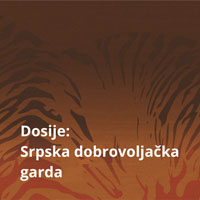
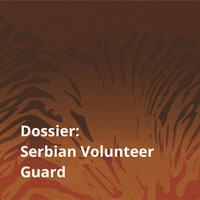 The crimes committed by the Serbian Volunteer Guard (SDG/the Guard), a group formed by Željko Ražnatović (Arkan), and its links with the Serbian police, military and political establishment, were an integral part of the indictments of the ICTY’s Office of the Prosecutor against Slobodan Milošević, Goran Hadžić, Jovica Stanišić and Franko Simatović.
The crimes committed by the Serbian Volunteer Guard (SDG/the Guard), a group formed by Željko Ražnatović (Arkan), and its links with the Serbian police, military and political establishment, were an integral part of the indictments of the ICTY’s Office of the Prosecutor against Slobodan Milošević, Goran Hadžić, Jovica Stanišić and Franko Simatović.
The trials of Milošević and Hadžić were terminated because they had died before the judgments were passed, but witness statements and evidence presented during the trials contain a wealth of materials about the activities of the SDG. In addition, the ICTY’s Office of the Prosecutor filed an indictment against SDG commander Željko Ražnatović aka Arkan for crimes committed in the area of Sanski Most. In the trial judgment following the retrial of Stanišić and Simatović, the Trial Chamber of the International Residual Mechanism for Criminal Tribunals (MICT) established that the SDG was involved in murders, persecution and forced displacement in the area of the so-called Serbian Autonomous Region of Slavonia, Baranja and Western Srem (SAO SBZS) in 1991 and 1992, in Bijeljina and Zvornik in 1992, and in Sanski Most in 1995. Nevertheless, not a single member of the SDG has been prosecuted for these crimes to date.






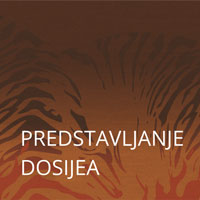
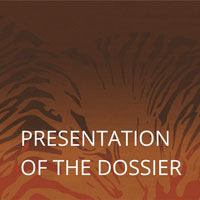 On Thursday, March 23, 2023, the Humanitarian Law Center (HLC) will present its fifteenth Dossier, entitled “Serbian Volunteer Guard” (Dossier). The presentation will be held in the large hall of the Media Center in Belgrade (Terazije 3, 2nd floor), starting at 12 PM.
On Thursday, March 23, 2023, the Humanitarian Law Center (HLC) will present its fifteenth Dossier, entitled “Serbian Volunteer Guard” (Dossier). The presentation will be held in the large hall of the Media Center in Belgrade (Terazije 3, 2nd floor), starting at 12 PM.
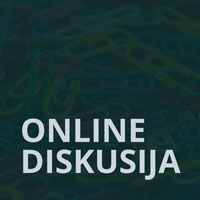
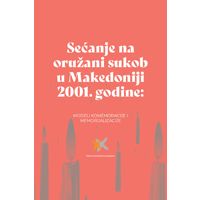
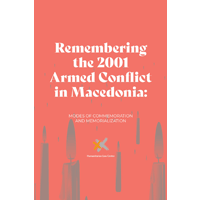
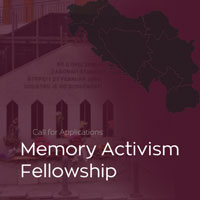
 Since 1992, Humanitarian Law Center has worked on documenting war crimes and human rights violations committed in the former Yugoslavia, focusing on the victims and their stories. The organisation advocates for a comprehensive and multifaceted transitional justice process. The work of the HLC is based on three pillars: documentation, justice and memory, with the Memory Activism Program as central for the organisation’s future. With its Memory Activism Program, the Humanitarian Law Center commemorates victims through various initiatives, including public debates, documentary films and digital memory activism on social media and other digital memory practices. In addition to commemorating victims of war crimes and mass human rights violations during the 1990s wars, the Memory Program challenges and confronts the dominant revisionist narratives about the wars, provides informal education, disseminates the judicially determined facts about the wars engagingly, using different media formats. Furthermore, the program conducts policy-oriented research and analysis and commentary of official memory politics in the region.
Since 1992, Humanitarian Law Center has worked on documenting war crimes and human rights violations committed in the former Yugoslavia, focusing on the victims and their stories. The organisation advocates for a comprehensive and multifaceted transitional justice process. The work of the HLC is based on three pillars: documentation, justice and memory, with the Memory Activism Program as central for the organisation’s future. With its Memory Activism Program, the Humanitarian Law Center commemorates victims through various initiatives, including public debates, documentary films and digital memory activism on social media and other digital memory practices. In addition to commemorating victims of war crimes and mass human rights violations during the 1990s wars, the Memory Program challenges and confronts the dominant revisionist narratives about the wars, provides informal education, disseminates the judicially determined facts about the wars engagingly, using different media formats. Furthermore, the program conducts policy-oriented research and analysis and commentary of official memory politics in the region.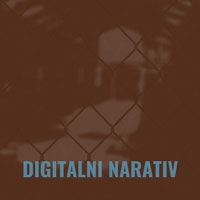

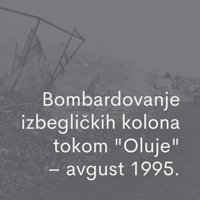
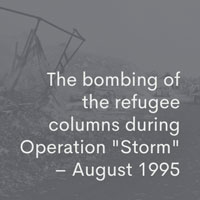 In order to establish the facts about the bombing of refugee columns on the territory of Bosnia and Herzegovina during the Croatian military-police Operation “Storm”, the Humanitarian Law Center (HLC) is publishing the data and excerpts from the witness statements about those events, which it collected immediately after the refugees’ arrival in Serbia.
In order to establish the facts about the bombing of refugee columns on the territory of Bosnia and Herzegovina during the Croatian military-police Operation “Storm”, the Humanitarian Law Center (HLC) is publishing the data and excerpts from the witness statements about those events, which it collected immediately after the refugees’ arrival in Serbia.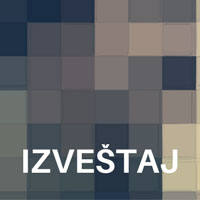
 The Report includes an analysis of 26 cases monitored by the HLC before the war crimes departments of the Higher Court and the Court of Appeals in Belgrade. Also, the Report contains an overview of the general findings on war crimes trials during 2021, as well as important socio-political events that are vital for war crimes trials in Serbia.
The Report includes an analysis of 26 cases monitored by the HLC before the war crimes departments of the Higher Court and the Court of Appeals in Belgrade. Also, the Report contains an overview of the general findings on war crimes trials during 2021, as well as important socio-political events that are vital for war crimes trials in Serbia.